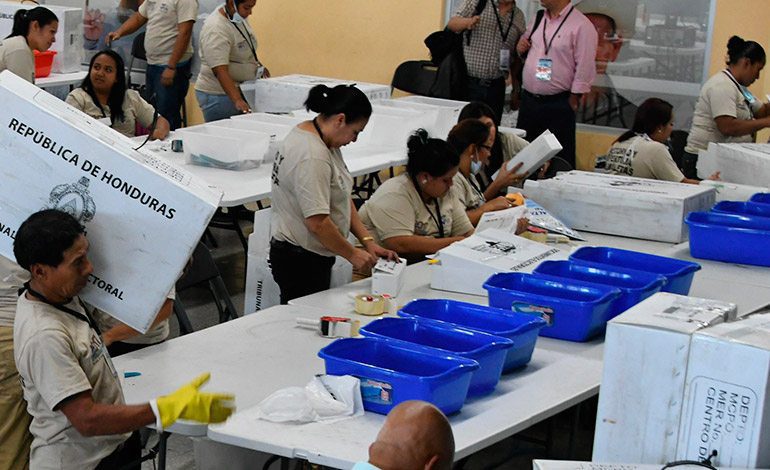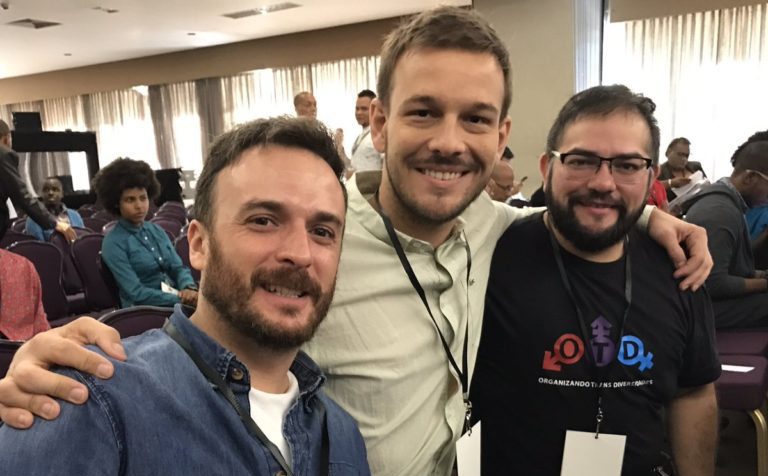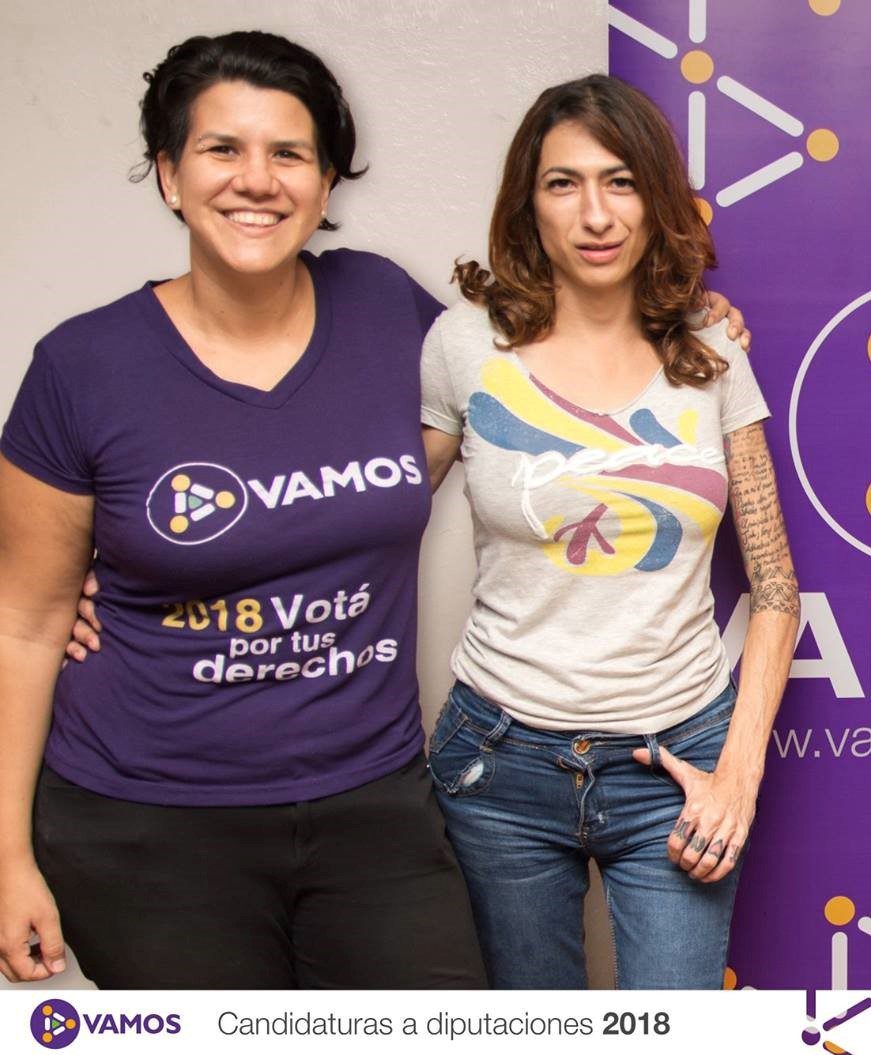
Members of the Supreme Electoral Tribunal in Honduras count votes.
After much criticism, turmoil, and rioting following the November 26, 2017 elections in Honduras, the Supreme Electoral Tribunal (TSE) finally officially announced the President on December 17, 2017. Juan Orlando of the lead party, National Party, won with 42.95% of the vote, edging out Salvador Nasralla of the opposition party, Libre-PINU, with 41.42% of the vote. Hondurans elected the President, 128 National Congresspersons, 20 Central American Parliamentarians, and mayors across the country.
The Victory Institute and our partners SOMOS CDC (Honduras) and Caribe Afirmativo (Colombia) have been working this past year to train LGBTI candidates seeking office, work with parties on inclusion efforts, and electoral monitoring. On September 26 in Tegucigalpa, and on September 27 San Pedro Sula, we organized civil society forums with political candidates from multiple parties as well as leaders from other underrepresented communities such as afrodescendants, indigenous people, women, youth, people with disabilities, human rights defenders, and LGBTI people.
A total of 19 candidates from seven political parties signed agreements committing to implement more inclusive and representative measures once they are elected. Of these, two were elected: Mario Luís Noe Villafranca of the Democratic Unification Party as Congressman, and Johana Guicel Bermúdez Lacayo of the National Party as Congresswoman. Although none of the four openly LGBTI candidates won, the signed equality agreements of these two newly elected officials will serve as accountability tools to engage them on inclusivity measures towards vulnerable populations. Victory, SOMOS CDC, and Caribe Afirmativo will continue to work closely with these allies and strengthen Honduras’s democracy by demonstrating to parties the importance of diverse political participation.


